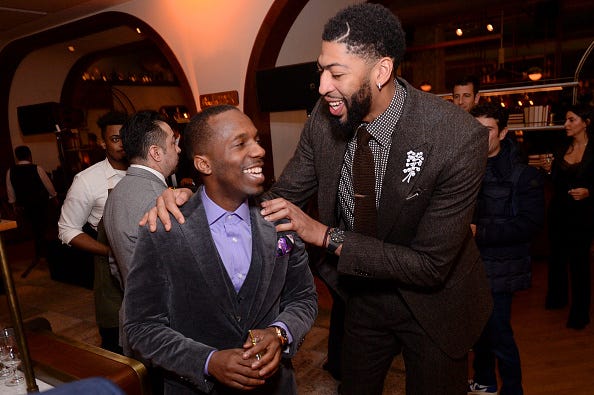Quick Post: What the Media Misses About Klutch
The Secret Sauce of its Rise
A nice aspect of doing this Substack is that I’m getting far more feedback from industry types (execs, agents, NBA Ops, etc.) than when I was at bigger institutions. Often that feedback augments my own understanding of an article, if not something far broader.
Here’s an example. An industry friend called about this last article of mine on the marriage of convenience at Klutch between superagents Rich Paul and Andy Miller. My friend offered a thought on what so many in media are missing about the Klutch phenomenon.
There’s a lot to analyze on what Klutch is, but what’s less well explained is why it happened. It happened because co-founders LeBron James and Rich Paul recognized there was a “white space,” meaning a gap in customer need.
For decades, player agencies were just player agencies. Their job was to get you a good contract, plus get some other needs met. But they weren’t cool. The agency names didn’t even sound cool. While I, for personal reasons, might have a bias towards Jewish names that phonetically read like a man sneezing, “Wasserman” does not have a ring to it. Plus, even if you shared your agency with an exclusive group of high level athletes, it wasn’t really a club in the way, say, Nike is. You weren’t a part of something; You were simply paying for a service.
But high level athletes want to feel like they’re in an exclusive club. They want to feel like they’re part of something cool. Rich Paul’s spiel on “player empowerment” is one message, informing a broader brand. Players now tell their agents that they’re joining Klutch, in part, to be introduced to cool people.
Roc Nation, founded by Jay-Z, might have been the first agency to recognize this, but it was too anchored in the music world to conquer the sports world. Klutch, with its sports-anchored “influence over precedence” mindset, has been more successful. Whatever we want to say about Klutch, turning an agency into a cool brand was a savvy exploitation of a market inefficiency. Credit where it’s due.




Speaking of access to different kinds info: what's your stats/data life like now? As an experiment, I scraped old versions of Rich Paul's agent page on RealGM; it had him at 13 clients in 2016, with a mostly (but not monotonically) upward trend to 38 clients now. One could imagine pulling that data for other agents, augmenting it with, say, salaries or win-shares, and using it to explore waxing and waning agent power. Is that the kind of thing you would have had easy access to within an institution that had a research department?
MJ - Love of the game
LeBron - Love of the fame